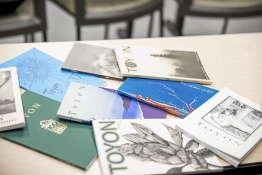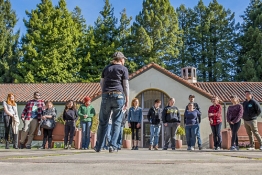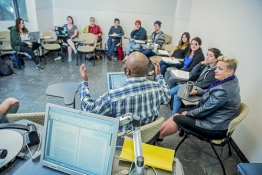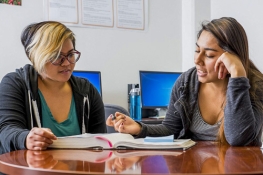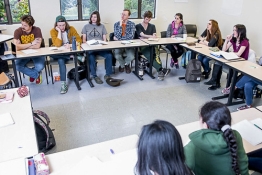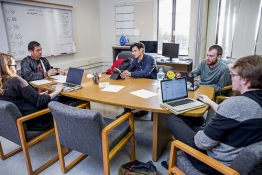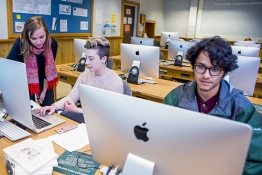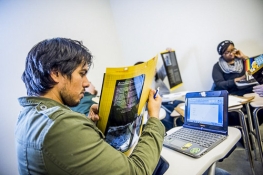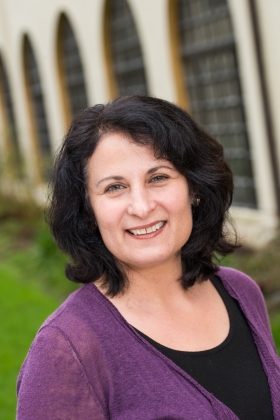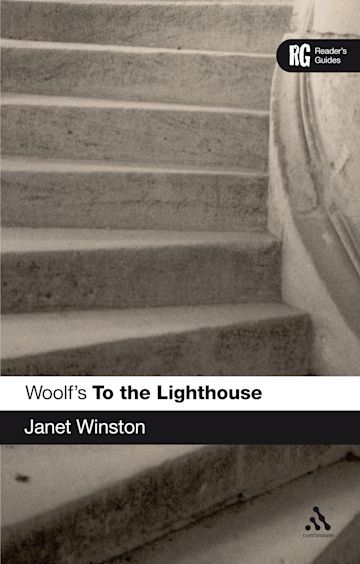Janet Winston
I was born and raised in the San Francisco Bay Area, went to college in Los Angeles and East Sussex, UK, and have worked in Idaho, Iowa, Oregon, and Virginia. Before launching a career in university teaching, I worked a variety of jobs: from baton twirling instructor to floral arranger; from Applied Behavior Analysis language tutor to program director for the Idaho Special Olympics. In between my BA in psychology and my PhD in English, I took courses at CSU Hayward (now East Bay).
My research on Queen Victoria and Virginia Woolf--icons of white imperialist femininity and white feminism, respectively--focuses on how racial-colonial logics are memorialized and destabilized in visual culture and narrative. Inspired in part by Atalia Omer’s book Days of Awe: Reimagining Jewishness in Solidarity with Palestinians (University of Chicago Press, 2019), I am currently writing an autoethnographic essay about white Jewish American history, activism, and identity.
As part of my work as a professor, I am involved in queer, antiracist, and Palestinian solidarity education and organizing. When I lived in Virginia, I was part of a core group of queer faculty who led a Ford Foundation grant-funded conference to establish “Network Virginia,” a coalition of LGBTQ faculty and students advocating for change across Virginia’s college campuses. Currently, I am active in the Eureka NAACP’s Legal Redress Committee, volunteer with the Center for Jewish Nonviolence, and serve as a Founding Co-Chair and Interim Co-President of the Palestine, Arab, and Muslim Caucus of the California Faculty Association’s Council for Racial & Social Justice.
Specialty Areas
Cultural Studies; Postcolonial Studies; Gender/Sexuality Studies; British Modernism; Twentieth-Century Visual Culture; Critical Theories of Race and Whiteness
Education
Courses Taught
Current Graduate Students
| Name | M.A. Project |
|---|---|
| Adam Mellott | "Between Scotch and Nothing”: Alcohol, Hunger, and Imperialism in Faulkner |
| Cole Shepard | Beyond Capitalist Realism: Post-Capitalist Futures, Anti-Capitalist Presents, and the Roads In Between |
Former Graduate Students
| Name | M.A. Project | Graduation Year |
|---|---|---|
| Cassandra Curatolo | Historical Consciousness, The Cultural Imaginary and Postcolonial Subjectivity in Ruth Ozeki’s A Tale for the Time Being | 2018 |
Publications
“Kinetic Tropes, Comedic Turns: Dancing To the Lighthouse.” Contradictory Woolf: Selected Papers from the Twenty-First Annual International Conference on Virginia Woolf. Ed. Derek Ryan and Stella Bolaki. Clemson University Digital Press, 2012. 122-28
Woolf's To the Lighthouse. Reader’s Guides Series on Key Texts in Literature and Philosophy. London: Continuum Books, 2009 “Difficult Silences.” Academe: Bulletin of the American Association of University Professors (July-August 2006): 64-67
"Reading Influences: Homoeroticism and Mentoring in Katherine Mansfield’s ‘Carnation’ and Virginia Woolf’s ‘Moments of Being: Slater’s Pins Have No Points.’” Virginia Woolf: Lesbian Readings. Ed. Eileen Barrett and Patricia Cramer. The Cutting Edge: Lesbian Life and Literature Series, NYU Press, 1997. 57-77.
Reprinted in Short Story Criticism: Criticism of the Works of Short Fiction Writers, Vol. 81. Ed. Thomas J. Schoenberg and Lawrence J. Trudeau. New York: Thomson Gale Publishers, 2005. 45-54.
“Queen Victoria in the Funnyhouse: Adrienne Kennedy and the Rituals of Colonial Possession.” Remaking Queen Victoria. Ed. Margaret Homans and Adrienne Munich. Cambridge Studies in Nineteenth-Century Literature and Culture Series, Cambridge University Press, 1997. 235-257
“‘Something Out of Harmony’: To the Lighthouse and the Subject(s) of Empire.” Woolf Studies Annual 2 (1996): 39-70. Reprinted in part in Virginia Woolf: To the Lighthouse, The Waves. Ed. Jane Goldman. Columbia Critical Guides Series, Columbia University Press, 1999. 159-67.

